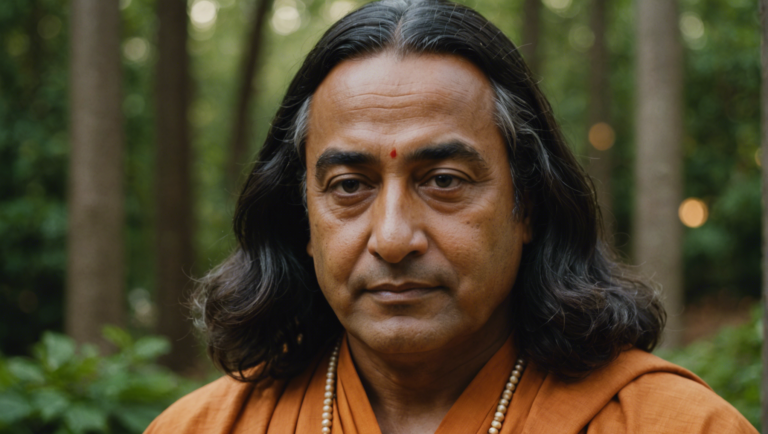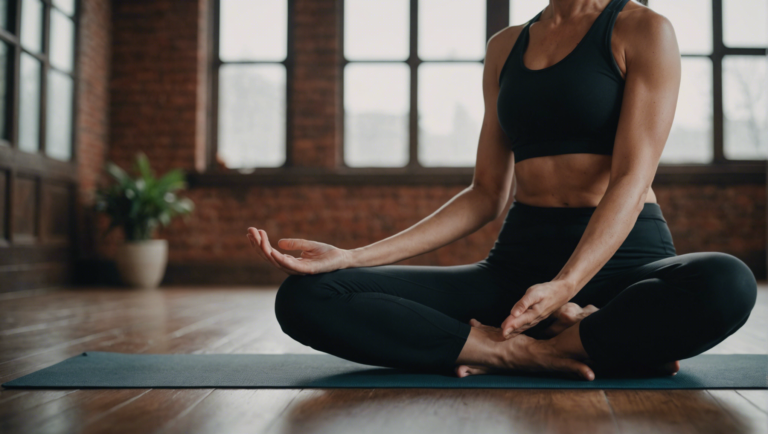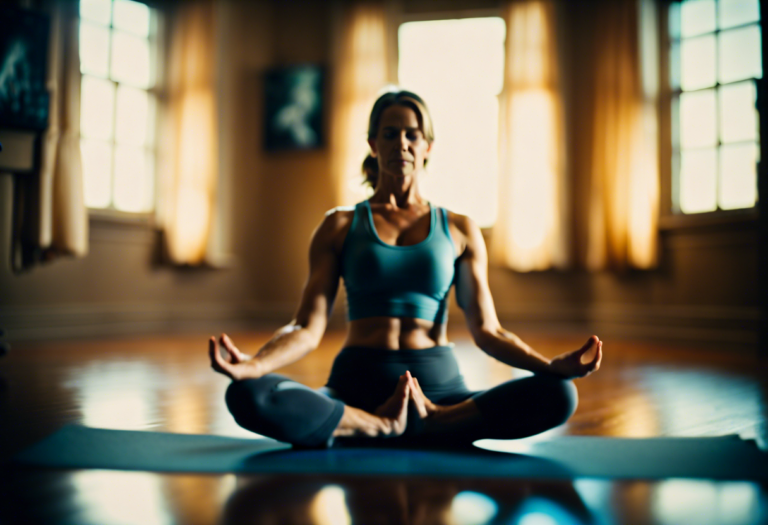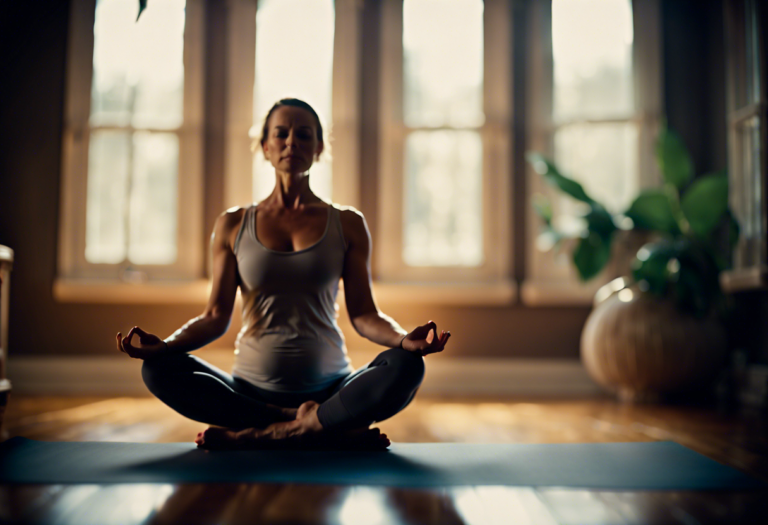Guidelines On How Long It Takes To Become Proficient In Yoga
Factors Affecting the Time Frame to Achieve Proficiency in Yoga
It is essential to understand the various factors that can influence the time frame required to achieve proficiency in yoga. Proficiency in yoga is not just about mastering physical postures but also encompasses a deep understanding of breathing techniques, meditation practices, and the philosophical foundations of yoga. Let’s delve into the key factors that can impact the journey to proficiency in yoga.
Starting Point and Background
The starting point and background of an individual play a crucial role in determining how long it takes to become proficient in yoga. Someone who is already physically active and has experience with activities that require balance, flexibility, and strength may progress more quickly than someone who is starting from a sedentary lifestyle.
Frequency and Consistency of Practice
Consistency is key when it comes to yoga practice. The frequency of practice, along with the consistency of effort, can greatly influence how quickly one progresses in yoga. Regular practice allows the body to adapt, muscles to strengthen, and flexibility to improve over time.
Intensity of Practice
The intensity of yoga practice can vary greatly depending on the style of yoga chosen. Some styles, such as Ashtanga or Power Yoga, are more physically demanding and may lead to quicker improvements in strength and flexibility. However, it is essential to find a balance that is sustainable for your body to prevent burnout or injuries.
Quality of Instruction
Having access to high-quality instruction is invaluable in the journey to proficiency in yoga. A knowledgeable and experienced teacher can provide guidance, correct alignment, and offer modifications tailored to individual needs. Attending classes led by skilled instructors can accelerate progress and deepen understanding.
Mindset and Attitude
One’s mindset and attitude towards practice can significantly impact the learning process. Approaching yoga with an open mind, patience, and a willingness to learn can enhance the overall experience and facilitate growth. Cultivating mindfulness, self-compassion, and a spirit of inquiry can contribute to progress on and off the mat.
Personal Health and Well-being
Individual health conditions and overall well-being can also affect the time frame to achieve proficiency in yoga. It is important to listen to your body, honor its limitations, and make modifications as needed to ensure a safe and sustainable practice. Prioritizing self-care and holistic health can support progress in yoga practice.
The time frame to become proficient in yoga is a highly individualized journey that is influenced by a combination of factors. By considering your starting point, practicing with consistency and intention, seeking quality instruction, fostering a positive mindset, and prioritizing your health, you can enhance your progress and experience deep transformation through the practice of yoga. Embrace the process, enjoy the journey, and celebrate each step forward on your path to proficiency in yoga.
Tips and Strategies to Accelerate Progress in Yoga Practice
To truly excel in your yoga practice and make significant progress, it’s essential to implement specific tips and strategies that can accelerate your journey towards proficiency. By incorporating these techniques into your routine, you can enhance your physical abilities, deepen your mental focus, and experience the full benefits that yoga has to offer.
Setting Clear Goals and Intentions
Setting clear and achievable goals is crucial in accelerating progress in your yoga practice. Whether you aim to master a challenging pose, increase flexibility, or improve mindfulness, having specific objectives in mind can provide direction and motivation. By setting intentions for each practice session, you can stay focused and track your progress over time.
Consistent Practice and Dedication
Consistency is key when it comes to advancing in yoga. Regular practice not only helps build strength and flexibility but also enhances body awareness and mental clarity. Aim to establish a daily or weekly practice routine that aligns with your goals and lifestyle. Remember that progress in yoga is a gradual process that requires dedication and commitment.
Mindful Breathing and Awareness
Conscious breathing, or pranayama, is an integral part of yoga practice that can significantly impact your progress. By incorporating mindful breathing techniques into your practice, you can cultivate a deeper sense of awareness, calm the mind, and enhance your overall yoga experience. Focus on synchronizing your breath with movement to create a harmonious flow during each session.
Proper Alignment and Posture
Maintaining proper alignment and posture is essential for both safety and progress in yoga. Pay close attention to your body’s alignment during each pose, ensuring that you distribute weight evenly and engage the correct muscles. Consider taking classes or working with a knowledgeable instructor to receive guidance on alignment principles and adjustments.
Strength and Flexibility Training
In addition to traditional yoga poses, incorporating strength and flexibility training exercises can accelerate your progress and prevent plateaus. By strengthening key muscle groups and increasing flexibility, you can advance towards more advanced poses and transitions. Explore complementary practices such as Pilates or weight training to enhance your overall physical abilities.
Cultivating Patience and Self-Compassion
Yoga is not just about physical mastery but also about cultivating patience, self-compassion, and self-awareness. Be kind to yourself throughout your practice journey, acknowledging that progress takes time and consistency. Embrace both the successes and challenges along the way, recognizing that each moment on the mat is an opportunity for growth and learning.
Seeking Guidance and Community Support
Don’t hesitate to seek guidance from experienced yoga teachers or fellow practitioners to accelerate your progress. Attending workshops, joining a yoga community, or participating in retreats can provide valuable insights, feedback, and motivation to enhance your practice. Surround yourself with supportive individuals who share your passion for yoga and can inspire you to reach new heights.
By incorporating these tips and strategies into your yoga practice, you can accelerate your progress, deepen your practice, and experience transformational growth on and off the mat. Remember that every step of your yoga journey is meaningful, and the key is to stay dedicated, curious, and open to the possibilities that yoga has to offer.
Common Mistakes that Delay Progress in Yoga Proficiency
When embarking on a journey to become proficient in yoga, individuals often encounter common mistakes that can significantly delay their progress. By addressing these pitfalls proactively, practitioners can streamline their path to mastery and deepen their practice effectively.
Overlooking the Importance of Consistency
Consistency is key in any endeavor, including yoga. One of the most common mistakes that individuals make is sporadically attending classes or practicing at irregular intervals. To become proficient in yoga, it is essential to establish a consistent practice schedule. By committing to regular practice, practitioners can cultivate discipline, enhance muscle memory, and experience progressive improvement in their skills and flexibility.
Neglecting Proper Alignment and Technique
Another frequent error that hinders progress in yoga proficiency is neglecting proper alignment and technique. Yoga is not just about achieving challenging poses; it is equally important to focus on alignment to prevent injuries and maximize the benefits of each posture. Practicing with incorrect alignment can lead to muscle strain, imbalance, and limited progress. Therefore, paying attention to alignment cues from instructors and prioritizing proper technique are essential for advancement in yoga practice.
Rushing Through Poses Without Mindful Awareness
In the fast-paced world we live in, it can be easy to rush through yoga poses without mindful awareness. However, the essence of yoga lies in the union of breath, movement, and awareness. By practicing with mindful intent and focusing on the present moment, practitioners can deepen their connection to their practice and unlock new levels of proficiency. Rushing through poses not only compromises alignment but also diminishes the holistic benefits that yoga offers for the mind, body, and spirit.
Comparing Progress to Others
Comparing one’s progress to that of others is a detrimental habit that can impede growth in yoga proficiency. Each individual’s yoga journey is unique, and progress is personal and subjective. Instead of fixating on comparing oneself to others, practitioners should focus on their own development, celebrate their achievements, and embrace their challenges as opportunities for growth. Cultivating a mindset of self-compassion and non-attachment to outcomes is crucial for sustained progress in yoga.
Skipping the Fundamentals
It is common for individuals to overlook the fundamental aspects of yoga practice in pursuit of advanced poses and sequences. However, building a strong foundation is essential for long-term progress and proficiency in yoga. Practicing basic asanas, pranayama, and meditation regularly not only strengthens the body and mind but also lays the groundwork for mastering more complex poses in the future. By honoring the fundamentals of yoga, practitioners can establish a solid framework for continuous growth and improvement.
By being mindful of these common mistakes and actively working to overcome them, individuals can expedite their journey towards proficiency in yoga. Embracing consistency, prioritizing proper alignment and technique, practicing with mindful awareness, fostering a non-comparative mindset, and honoring the fundamentals are key strategies for avoiding pitfalls and advancing in the practice of yoga. Through dedication, patience, and a commitment to learning and growing, practitioners can navigate past these obstacles and elevate their yoga practice to new heights of proficiency and mastery.
Personal Experiences and Stories of Achieving Proficiency in Yoga
Understanding the Role of Consistency in Developing Proficiency in Yoga
Evolving in yoga practice requires dedication, discipline, and time. Consistency plays a pivotal role in mastering the art of yoga. Professional yogis emphasize the importance of regular practice to enhance skills and deepen the mind-body connection. Whether you’re a novice or an experienced practitioner, understanding how consistency influences proficiency in yoga is crucial for your growth in this ancient discipline.
The Impact of Regular Practice
Consistency in yoga practice is more than just showing up on your mat daily. It involves committing to a routine that aligns with your goals and values. Regular practice allows you to observe progress, identify areas for improvement, and develop a deeper understanding of the various yoga techniques. By engaging in consistent practice, you cultivate mindfulness, resilience, and patience, which are essential qualities in advancing your yoga journey.
Building Muscle Memory
Consistent practice in yoga helps in building muscle memory, a process where your muscles learn to perform specific movements through repetition. This is particularly beneficial in mastering intricate poses and sequences. With regular practice, your body becomes familiar with the alignment, transitions, and balance required for different yoga postures, making it easier to progress towards more challenging poses over time.
Cultivating Mental Focus
Yoga is not just a physical exercise; it is also a practice that cultivates mental focus and emotional stability. Consistency in yoga practice hones your ability to concentrate on the present moment, quiet the mind, and stay focused amidst distractions. As you continue to show up on your mat consistently, you’ll notice an improvement in your ability to remain centered and composed both during yoga sessions and in your daily life.
Enhancing Flexibility and Strength
One of the key benefits of consistent yoga practice is the gradual improvement in flexibility and strength. Regularly engaging in yoga sequences and asanas helps in stretching and strengthening different muscle groups, leading to increased flexibility and enhanced physical resilience. Over time, you’ll observe a noticeable difference in your body’s capabilities and mobility, allowing you to explore more advanced poses with ease.
Deepening Body Awareness
Consistency in yoga practice deepens your body awareness, enabling you to develop a profound connection between your physical, mental, and emotional states. Through regular practice, you become more attuned to subtle sensations in your body, recognize areas of tension or discomfort, and learn how to release and relax those spaces. This heightened body awareness is instrumental in refining your practice and fine-tuning your alignment in various yoga poses.
Consistency is the cornerstone of progress and proficiency in yoga. By committing to a regular practice routine, you not only enhance your physical abilities but also cultivate mental resilience, emotional balance, and spiritual growth on your yoga journey. Remember that every step you take on the mat contributes to your evolution as a yogi, so stay dedicated, stay consistent, and embrace the transformative power of yoga in your life.
Conclusion
In the journey towards achieving proficiency in yoga, it is essential to understand the various factors that can influence the time frame involved in this process. Factors such as individual dedication, starting fitness level, frequency of practice, and the type of yoga being pursued all play a crucial role in determining how quickly one can progress. By recognizing these elements and incorporating them into one’s practice routine, individuals can better tailor their approach to match their goals and expectations.
To accelerate progress in yoga practice, it is beneficial to embrace certain tips and strategies that have proven to be effective. Setting specific, achievable goals, maintaining a regular practice schedule, seeking guidance from experienced instructors, and exploring different styles of yoga can all contribute to a more rapid development of proficiency. Additionally, incorporating mindfulness and self-reflection into one’s practice can deepen the understanding of yoga principles and enhance overall progress.
While there are ways to speed up progress in yoga, it is equally important to be mindful of common mistakes that can hinder one’s journey towards proficiency. Avoiding comparison with others, pushing beyond one’s limits too quickly, neglecting proper technique, and failing to listen to one’s body are all pitfalls that can slow progress significantly. By being aware of these potential stumbling blocks and taking proactive steps to address them, individuals can prevent unnecessary delays in their advancement.
Personal experiences and stories of individuals who have achieved proficiency in yoga can offer valuable insights and inspiration to those on a similar path. Hearing about the challenges they faced, the breakthroughs they experienced, and the lessons they learned along the way can provide valuable guidance and motivation. By learning from the journeys of others, individuals can gain a deeper appreciation for the process of achieving proficiency in yoga and approach their own practice with renewed enthusiasm and determination.
Consistency plays a pivotal role in developing proficiency in yoga. Regular practice, even if it is just a few minutes each day, can yield significant benefits over time. By establishing a consistent practice routine and making yoga a priority in one’s daily life, individuals can gradually build strength, flexibility, and mindfulness. The cumulative effects of regular practice will not only enhance physical abilities but also foster mental clarity, emotional balance, and spiritual growth.
The time frame required to achieve proficiency in yoga varies for each individual and is influenced by a multitude of factors. By embracing practical strategies, avoiding common mistakes, drawing inspiration from others, and prioritizing consistency in practice, individuals can expedite their progress and deepen their understanding of this ancient discipline. Ultimately, the journey towards proficiency in yoga is not just about reaching a destination but about embracing the transformative power of the practice itself.



